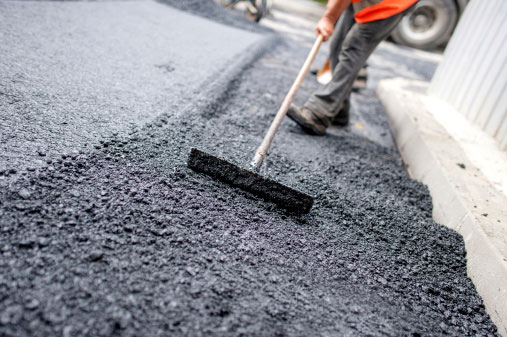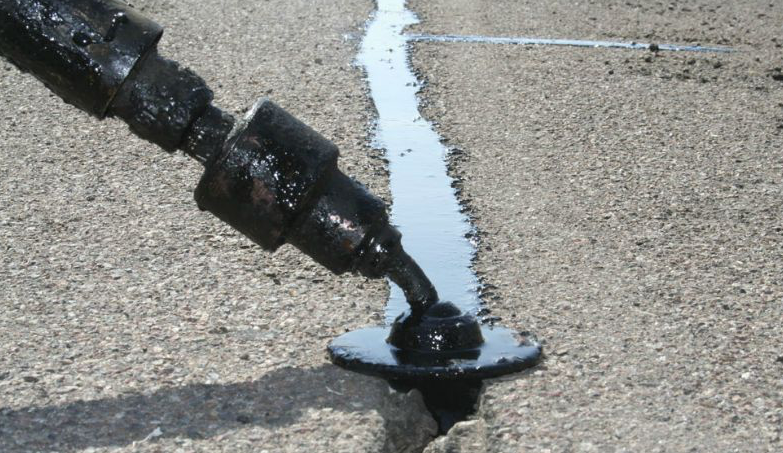Hot Mix Asphalt: A Sustainable Solution for Sidewalk
Hot Mix Asphalt (HMA) has arised as a leading lasting selection for sidewalk options, using a myriad of ingenious technologies and environmental benefits. Its ability to minimize and reuse materials power usage offers an engaging situation for its fostering in road building and construction projects. The long-lasting efficiency and resilience of HMA make it a preferred alternative for infrastructure development. As the need for environmentally friendly construction techniques grows, exploring the nuances of HMA's sustainability can provide valuable understandings right into the future of sidewalk services.
Environmental Benefits of Hot Mix Asphalt

Furthermore, Warm Mix Asphalt aids to minimize urban warmth island effects. Its dark shade absorbs sunshine, reducing the amount of heat reflected back into the ambience compared to lighter-colored sidewalks. This can decrease ambient temperature levels in metropolitan areas, decreasing the need for cooling and ultimately minimizing energy intake.
Furthermore, Hot Mix Asphalt adds to improved stormwater administration. Its permeable nature allows water to penetrate the sidewalk and recharge groundwater materials, reducing runoff and the risk of flooding. These ecological advantages make Hot Mix Asphalt a lasting selection for leading roads and highways.
Energy Effectiveness in HMA Manufacturing
Is energy efficiency a critical element in the manufacturing of Hot Mix Asphalt (HMA)? Absolutely. Energy plays a considerable duty in the production of HMA, influencing both price and ecological sustainability. One essential facet of power effectiveness in HMA manufacturing is using cozy mix asphalt (WMA) innovations (regrading). WMA enables the mixing and positioning of asphalt at lower temperature levels contrasted to conventional warm mix asphalt, leading to decreased energy intake during production. This procedure not just lowers gas use yet additionally decreases greenhouse gas emissions, making it a much more eco-friendly choice.
In addition, innovations in plant modern technologies have led to more energy-efficient HMA production processes. By maximizing power use in HMA production, the industry can decrease its carbon impact while preserving top quality sidewalk materials.
Recyclability of Hot Mix Asphalt
The recyclability of Warm Mix Asphalt (HMA) is an essential element of its sustainability and long-lasting ecological influence. HMA is one of one of the most recycled products in the USA, with over 100 million lots of redeemed asphalt pavement (RAP) being recycled annually in brand-new pavement building. Recycling HMA offers a Related Site number of environmental benefits, such as minimizing the demand for virgin products, lowering energy consumption throughout production, and lowering the amount of waste sent to landfills.
The procedure of recycling HMA entails crushing the existing pavement, crushing it into smaller pieces, see page and blending it with brand-new accumulation and asphalt binder to develop a recycled mix. On the whole, the recyclability of HMA plays a considerable function in advertising sustainable methods within the pavement industry.

Long-Term Efficiency of HMA
Asphalt pavements show resilience and strength over a prolonged duration, showing the long-term efficiency of Hot Mix Asphalt (HMA) Additionally, developments in HMA innovation, such as the use of polymer-modified binders and cozy mix asphalt, have additionally enhanced the durability and durability of HMA sidewalks. By focusing on high quality construction and upkeep methods, HMA proceeds to show itself as a economical and sustainable option for resilient sidewalk infrastructure.

HMA: Toughness and Sustainability
Showing both toughness and sustainability, Hot Mix Asphalt (HMA) has become a cornerstone in the building of resilient pavement facilities - hot mix asphalt. HMA's sturdiness originates from its capacity to endure heavy loads, rough weather, and high traffic quantities, making it a reputable choice for roadways, highways, and airport terminal paths. The composition of HMA, which generally consists of accumulations, binder, and filler, plays a critical duty in enhancing its long life and resistance to deterioration
Additionally, HMA's sustainability exists in its recyclability and energy-efficient manufacturing procedure. The ability to recycle recovered asphalt pavement (RAP) in brand-new HMA blends decreases the demand for virgin products and decreases the ecological effect of sidewalk building and construction and maintenance. Additionally, the energy effectiveness of producing HMA hinges on its reduced mixing temperatures compared to other sidewalk products, causing minimized power consumption and greenhouse gas discharges.
Verdict
To conclude, warm mix asphalt (HMA) supplies a sustainable solution for sidewalk with its ecologically pleasant attributes. HMA's recyclability, power efficiency in manufacturing, and long-term durability make it a green selection for road building and construction. By conserving natural deposits, minimizing waste, and lowering greenhouse gas exhausts, HMA plays a critical duty in advertising sustainability in facilities advancement. Its capability to alleviate city heat island effects further underscores check here its importance in producing resilient and environmentally mindful sidewalk systems.
HMA is one of the most recycled products in the United States, with over 100 million bunches of recovered asphalt pavement (RAP) being recycled yearly in brand-new pavement construction.The procedure of recycling HMA includes crushing the existing pavement, squashing it into smaller sized pieces, and mixing it with brand-new aggregate and asphalt binder to develop a recycled mix.Asphalt pavements show sturdiness and durability over an extended duration, reflecting the long-lasting performance of Hot Mix Asphalt (HMA) Furthermore, developments in HMA modern technology, such as the use of polymer-modified binders and cozy mix asphalt, have additionally enhanced the toughness and durability of HMA pavements. The capability to recycle reclaimed asphalt sidewalk (RAP) in brand-new HMA mixes reduces the need for virgin materials and reduces the ecological impact of pavement building and construction and upkeep.